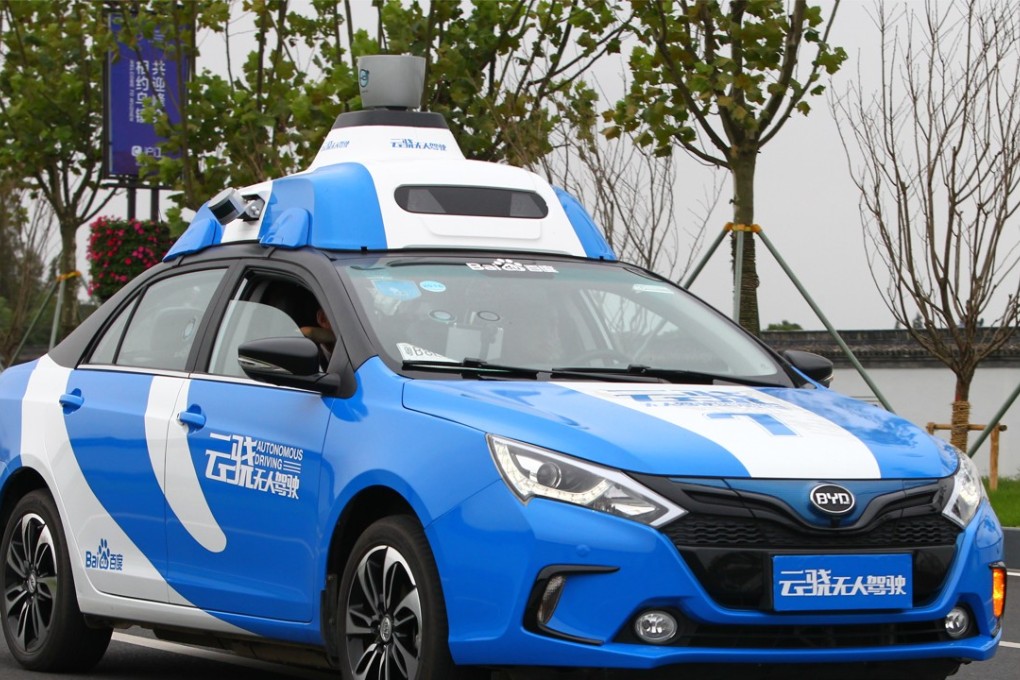Beijing gives Baidu go-ahead to test self-driving cars as US reviews safety after Uber fatal crash
China and US are locked in a race to develop autonomous vehicles. Beijing issued the first license for a self-driving car to Baidu, days after an Uber autonomous vehicle killed a pedestrian in the US

Beijing gave the long-awaited go-ahead to Baidu to conduct open-road tests for its autonomous vehicles, days after a self-driving Uber car failed to slow down and killed a 49-year-old woman in the US.
Baidu, named by the Chinese government to a national team of so-called artificial intelligence (AI) champions, is the only company to receive the first batch of five number plates to conduct the trial. The Beijing-based company has been tasked to spearhead the development of self-driving cars and is seeking to build the vehicular equivalent of the Android operating system for smartphones.
Beijing joins Shanghai in allowing car companies to test their self-driving vehicles under real-world traffic conditions, a step that’s crucial for the machines to learn and calibrate their responses. Before this, car companies have tested their vehicles on closed circuits or very secluded areas where there are few if any cars and pedestrians, to minimise the potential for accidents.
Autonomous driving is one of the areas where China and the US are competing for leadership, part of a broader contest for supremacy in the next generations of technology that is revolutionising the way people work, play and live. Self-driving cars are increasingly seen as an amalgamation of the latest technologies, including 5G, manufacturing and new energy, and the holy grail of applied technology because they must prove to be safe in sometimes chaotic, unpredictable real-world conditions.
In December, the National Development and Reform Commission, China’s top economic planning agency, unveiled a three-year plan making the development of smart cars a national priority. Underpinned by AI, the backbone technology driving the so-called fourth industrial revolution, autonomous driving is expected to generate US$7 trillion in market value by 2050, according to an earlier report by Intel.